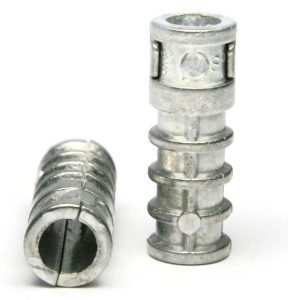OEM M6 x 24mm Stud Bolt for Reliable Fastening Solutions
Nov . 18, 2024 04:10 Back to list
OEM M6 x 24mm Stud Bolt for Reliable Fastening Solutions
Understanding OEM M6 x 24 Stud Bolts A Comprehensive Overview
When it comes to precision engineering and mechanical assemblies, the choice of fasteners can significantly impact the overall integrity and performance of a product. Among various types of fasteners, stud bolts are essential components known for their reliability and strength. The OEM M6 x 24 stud bolt is a specific type that caters to both automotive and industrial applications, offering a blend of performance and durability.
What is an M6 x 24 Stud Bolt?
The designation M6 x 24 refers to the metric size of the stud bolt. The M6 indicates that the bolt has a nominal diameter of 6 millimeters, while 24 signifies its length of 24 millimeters. Stud bolts are unique in that they typically do not have a traditional head like other bolts; instead, they are threaded along their entire length, allowing for versatility in fastening applications.
Typically, stud bolts are used in pairs, with a nut on each end, which allows for better load distribution and makes them ideal for clamping two or more components together. The M6 size is particularly favored in automotive and machinery applications due to its balance of compactness and strength.
Applications of M6 x 24 Stud Bolts
OEM M6 x 24 stud bolts are often found in various industries, including automotive, aerospace, and machinery. They are extensively used in the following applications
1. Automotive Engines These stud bolts are used to secure components like cylinder heads, ensuring that high-pressure environments are correctly sealed.
oem m6 x 24 stud bolt

2. Machinery Maintenance In industrial settings, these bolts often hold various parts of machines together, ensuring stability and preventing loosening due to vibrations.
3. Structural Assemblies In construction and fabrication, M6 x 24 stud bolts can be utilized where space constraints exist, providing a strong connection in tight areas.
Material and Strength Considerations
In terms of material, OEM M6 x 24 stud bolts are commonly made from high-strength steel, often with a coating to prevent corrosion. They may also be available in stainless steel for environments that require higher resistance to oxidation and rust.
The strength of a stud bolt is often governed by its tensile strength rating. This rating indicates the maximum load that the bolt can handle before failing. It is essential to select the appropriate grade of stud bolt based on the specific application, load requirements, and environmental conditions.
Conclusion
In summary, OEM M6 x 24 stud bolts represent a vital component in modern engineering and manufacturing sectors. Their unique design, along with robust material properties, render them indispensable for various applications. When selecting stud bolts, it is crucial to consider factors such as material, tensile strength, and compatibility with the specific assembly requirements. By understanding the characteristics and benefits of M6 x 24 stud bolts, engineers and manufacturers can ensure that their projects maintain structural integrity and optimal performance. Whether you are in automotive repair, machinery maintenance, or construction, investing in quality OEM fasteners will contribute significantly to the longevity and reliability of your assemblies.
Latest news
-
Premium Phosphated Drywall Screws Supplier | Durable, Rust-Resistant
NewsAug.27,2025
-
Reliable Wire Bolts Suppliers | Quality Zinc Plated Fasteners
NewsAug.26,2025
-
Wire Bolts Suppliers: Durable & Reliable Fasteners for Every Project
NewsAug.25,2025
-
Premium Cabinet Bolts Supplier | Wholesale & Custom Solutions
NewsAug.24,2025
-
Reliable Axle Nuts Supplier | Quality & Precision Fasteners
NewsAug.23,2025
-
Durable Bolts for Lawn Mower Handle - Top Supplier & Manufacturer
NewsAug.22,2025
